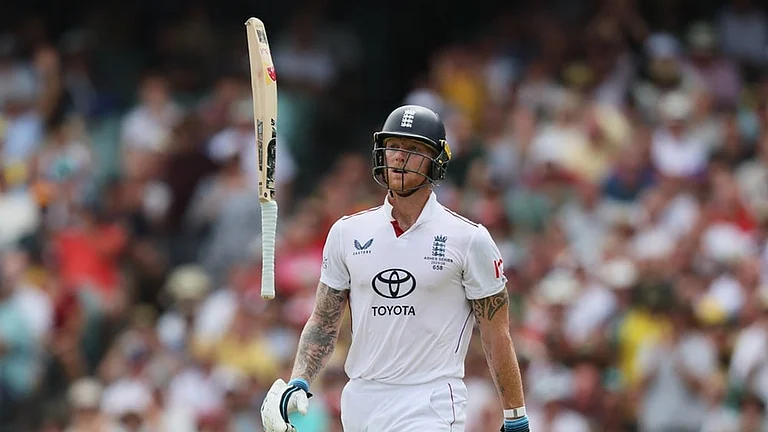“I wish I wasn’t number one.”
These heartbreaking words were uttered by 16-year-old Prachi Nigam from Uttar Pradesh. She topped her class 10 state-board examinations this year, scoring an outstanding 98.5 per cent after competing with 5,500,000 other students. But it wasn’t her resilient story of hard work and vision to become an engineer that caught the attention of the internet. Rather hundreds of anonymous users online reduced her to her looks, acne, facial hair, physical appearance and how she was ‘unlady-like’.
These comments, that are too vicious to reiterate, were mainly focused on how Prachi should “focus on grooming” instead of studying. One user claimed that it was due to the ‘stupidity’ of her parents, who must have stopped her from ‘getting her appearance fixed’. Albeit ironic, how women are expected to excel at everything: in academics, in personal, social life and physically too. And how there is a set standard established for each of these. If one is prioritised over the other, or if they don’t meet these societal standards, women are further mocked and humiliated for doing so.
"It is literally impossible to be a woman," says Gloria, a character played by actress America Ferrera in the movie Barbie, which was released last year. “You are so beautiful, and so smart, and it kills me that you don't think you're good enough. Like, we have to always be extraordinary, but somehow, we're always doing it wrong.”
Almost every day, this monologue strikes the chord with many women who are pressured into conforming to archaic beauty standards and shamed for something as natural as body hair.
Trolling in the age of social media
In an interview to BBC, days after her image went viral for all the wrong reasons, Prachi gave a fitting response to trolls: "However God has made me, I am okay with it. For those who feel there is a difference, it doesn't matter. Even Chanakya was trolled, and he did not care. Similarly, I also don't care and will focus on my studies.”
But trolling in the age of social media has been known to take dark turns. The images and videos are shared and re-shared multiple times creating a toxic reminder for the person being trolled. Several studies have shown that trolling can cause lowered self-esteem, anxiety, depression and in worst cases…many have attempted to die by suicide.
“If I had scored less marks, I would not have topped and become famous. Maybe that would have been better,” Prachi had also said in the interview. What was supposed to be celebrated as a moment of joy instead became a moment of guilt regarding her appearance.
There was also overwhelming solidarity for Prachi, with many calling out online trolls for fixating on a woman’s appearance. Some also pointed out how many women often go through hormonal imbalance, caused commonly by a condition called polycystic ovarian syndrome (PCOS), which can also lead to acne, hirsutism (facial hair), scalp hair loss, weight gain, and menstrual issues. “This lack of awareness and gaslighting of women's reproductive health from PCOS to endometriosis to PMDD is a plague to a woman's sanity,” a social media user wrote on X. Prachi, in fact, thanked those who supported her during this time. But even solidarity appears to be commercialised in today’s day and age.
What probably started with the right intention of showing support to Prachi, Bombay Shaving Company’s full-page advertisement with the message "We hope you never get bullied into using our razor", perpetuated the same harmful stereotypes that made her the center of trolling in the first place. The advertisement read: "Dear Prachi, they are trolling your hair today, they'll applaud your A.I.R tomorrow. We hope you never get bullied into using our razor".
Many called out the company’s move to capitalise on the girl’s harrowing cyber-bullying experience in the name of sending a ‘message’ but only to sell its razor products. As a social media user rightfully pointed out in a post on X: “Moment marketing to desperately jump on the wagon of trends clearly shows. Still talking of razors? Is that how you encourage and celebrate heroes?” Another user questioned if the company even took consent from Prachi for using her name and experience for commercial gains.
Why do women have to be apologetic about the way they look? another X user asked.
Outlook dedicated its women’s day issue this year, titled ‘Flawless’, to unfiltered, uninterrupted, and unapologetic women. Smitha Sehgal, a poet and legal professional, wrote about the liberation of being ‘unbeautiful’. “In the waning biological cycle, I hold on to a short-lived gift in the belief that I shall still have the unique liberation of being ‘unbeautiful’ to fall back upon,” she wrote.
The issue also looked at how beauty today is heavily influenced by brands and marketing at the cost of women’s insecurities. Face correction (nose and lip jobs), body contouring, tucks and lifts, liposuction, cool sculpting, anti-ageing treatments like chemical peels, Botox and fillers, skin whitening, and micro-braiding etc. There are new and expensive ways to seek ‘perfection’.
“But when would ‘perfect’ be perfect enough?” asks Pupps Roy. “In an ideal society, we will not need the freedom of extreme choice to change the way we look. There will be no pressure on us to look perfect.”




























